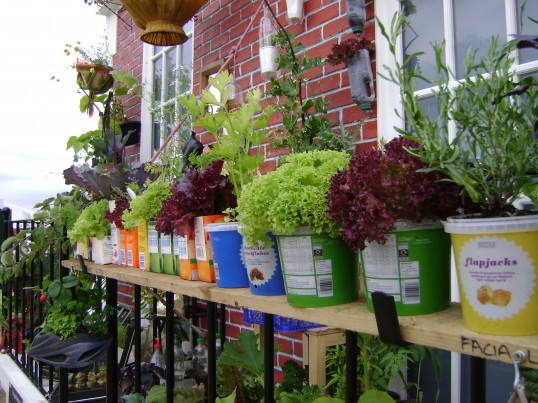
The city of Toronto has looked at the carbon and environmental impact of food and food systems
and finds that 30-40% of its carbon footprint comes in one way or another from food related activities: transportation, energy growing, retailing.
Growing 10% of the vegetables in the city would reduce greenhouse gas emissions by 37.9 kilotonnes a year, help meet Toronto’s commitments to reduce global warming, and avoid more than $5 million in environmental costs. Growing your own food involves caring for the soil, composting, and growing plants from seeds, it reduces transportation, packaging and waste, the energy input is mainly from the sun and from the gardener’s physical labour. In addition allotments provide a space where the local community can share knowledge as well as plants and produce.
http://www.toronto.ca/food_hunger/pdf/food_charter.pdf
This post was written by:

Debbie - who has written 872 posts on My Climate Change Garden.
I am not an experienced gardener - more of an enthusiastic amateur who learns by trial and error and who is keen to "manage" the effects of shifting weather patterns on my garden.
Writing this blog is my passion and it has evolved over 12 years to inspire engagement with climate change outside our back doors, in our personal gardens and green spaces.
My mission is to fertilise and expand this platform to grow a community of global gardeners communicating about the effects of climate change on our plants and exploring how each individual can make small changes in our lives to become more sustainable.
The future of our gardens and #OurPlanet is in our hands - please plant your own seeds for our collective sustainable future.
Contact the author










Fri, Jul 22, 2011
Climate Change, Grow your own, Canadian Climate Change, Allotments